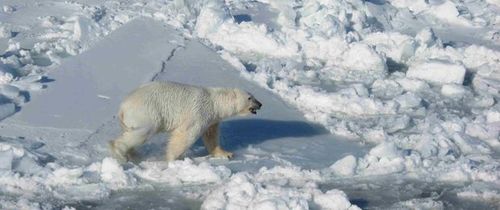Carbon emissions rise for the first time in 7 years
A worrying government report has shown that for the first time in seven years, the UK’s production of greenhouse gases has risen. Emissions of the primary greenhouse gas CO2 have increased by almost 4 percent, along with the five other greenhouse gases covered by the Kyoto Protocol. The data released by the Department of Energy and Climate Change marks a step backwards in the fight against global warming, and sparks new concerns over Britain’s carbon footprint.
Scientists believe that the main contributor to this spike in emissions is the exceptionally cold winter, which caused an increased use of gas to heat homes. Although one bad year will not prevent Britain meeting its long-term target of emission reduction set out by the Kyoto Protocol, the statistics have given politicians a harsh reminder that stronger policies on home insulation could have prevented such a drastic increase in gas usage. On top of this, it is a clear sign that as a nation we rely too heavily on fossil fuels, and that the Government needs to invest in renewable energy resources to stop such an increase happening again.
So why is an increase in CO2 so dangerous? Essentially, CO2 emissions cause global warming by creating a ‘greenhouse effect’. As greenhouse gases such as methane, sulphur and hexafluoride are produced they rise, creating a layer just below our atmosphere. Solar energy passes through the atmosphere and the layer of greenhouse gases, and approximately half of this is absorbed by the earth.
Solar energy becomes heat, which is re-radiated as infrared radiation, most of which should pass through the atmosphere. Instead, however, this radiation is absorbed by greenhouse gases, and is later emitted back towards earth. This causes heat to be trapped between the greenhouse layer and the earth’s surface, warming our planet.
Chlorofluorocarbons (CFCs) are another type of greenhouse gas affecting the climate. Through a chain reaction involving free radicals and ozone molecules in the ozone layer, molecules of ozone are rapidly becoming oxygen, which doesn’t provide the same protection. Whilst ozone is able to absorb much of the sun’s harmful UVB radiation, oxygen is not, and so the depletion of the ozone layer can lead to an increased risk of skin cancer, amongst other problems.
These phenomena are already having devastating effects in the extremities of our planet. Glaciers in the Arctic and Antarctic regions are melting due to the increased temperature. This is a danger to humans as well as wildlife – just as the ice floes are disappearing for the polar bears, our land is disappearing too. As sea levels rise, islands close to sea level will be in real danger of simply disappearing under the ocean. Islands such as the Maldives are being forced to consider their options as this threat worsens.
Depletion of the ozone layer has already caused problems in South America, where residents are routinely asked to stay indoors wherever possible due to the high UV exposure. The largest ozone hole is over the Antarctic, but it is so large that it is able to reach heavily populated areas such as Argentina and Chile at certain times of the year.
So what can we students do to help get the UK back on track? Here’s a few tips to help you cut down on your carbon emissions:
The bus is good, but your bike is better.
Students are generally pretty good at using public transport, but that doesn’t mean we can’t go one further. Using a bike is better for you and the environment. A bus is still better than a taxi though, so if you’re making a longer journey, use public transport instead of a car.
Eat locally-sourced food.
This is good for your wallet too – food imported from overseas has a huge carbon footprint attached to it, and an inflated price tag too. Try to buy locally-sourced produce – it won’t have travelled as far, so you won’t be forking out for a flight!
Turn off your lights, computer and TV.
It’s a simple one, but a big one. Like the other tips mentioned above, this will help save you money (especially if you’re off-campus). You may only save a few pennies, but it won’t cost the earth. It all adds up.
It’s Go Green Week here at Warwick, so there will be plenty of information and activities so you can learn more about how to save energy and what effects energy usage has on our planet. Climate change will affect everyone, so get out there and Go Green.

Comments